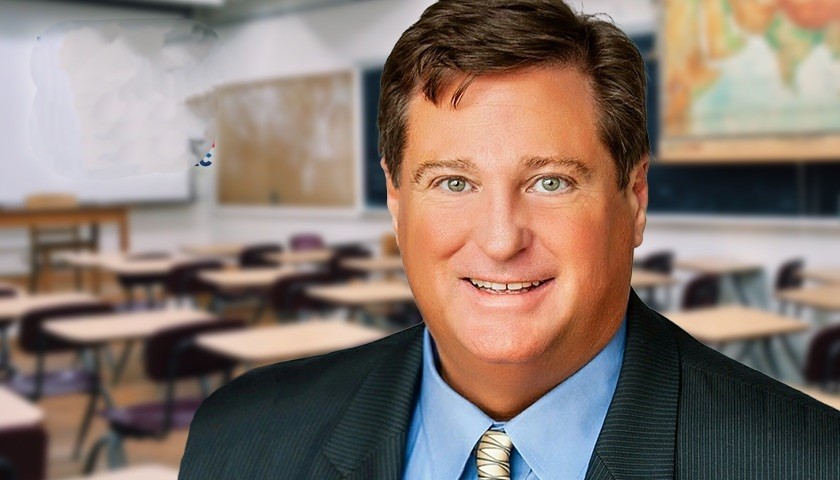In a world where we often hear about the "teacher shortage," it’s time to ask ourselves: What exactly does that mean? Are we short on teachers, or are we short on respect for the teaching profession?
My organization works hard to support educators through teamwork and collaboration, emphasizing personal growth and innovation in K-12 education. We raise awareness of key issues among policymakers and work to create practical solutions that deliver results for students and teachers.
Too many politicians have perfected the art of making teachers into punching bags, while the real issues stay hidden and go unaddressed. To them, I offer this reminder from my own 5th-grade teacher, which can serve as a reminder: 1) Is it kind? 2) Is it helpful? 3) Is it necessary?
Educators, like all citizens, share concerns about what truly matters to them. Teachers are leaving the profession due to challenges that hinder effective teaching and learning. The increasing prevalence of behavioral issues among students, combined with minimal consequences, creates unproductive learning environments. Heavy workloads, loss of planning periods, and covering classes when substitute teachers are unavailable contribute to their stress, while low pay often leaves them feeling undervalued. Additionally, unrealistic expectations from policymakers and some parents exacerbate the problem.
This combination of factors leads to significant burnout and mental health issues as teachers deal with the emotional toll of their roles. Safety concerns, especially in schools facing violence or bullying, further weaken their sense of security and well-being. A widespread lack of respect for the teaching profession undermines morale, making it difficult for dedicated educators to remain committed to a career that demands so much but offers so little in return.
Politicians often emphasize the importance of education, but they don't always follow through with action. When we raise teacher salaries, we also face higher costs for health insurance and childcare. Many teachers can't afford to live in the communities where they work because housing prices are so high. Salaries for experienced teachers don’t keep pace with inflation, and benefits are being reduced, making it challenging to attract and retain teachers. Some administrators earn good salaries, which is a topic for discussion, but it's usually not classroom teachers or support staff who are well-paid.
Public discourse is often driven by well-funded critics who blame educators for everything wrong with the system, including low student performance and a lack of resources. They fail to recognize that teachers must follow district-approved curricula and comply with state and federal mandates. Yet, they are frequently criticized as if they are personally responsible for broader societal problems.
We cannot overlook the state of our classrooms. Many low-income students lack basic supplies, and essential resources are missing. When politicians ignore this, they send the message that they value education but aren’t willing to invest in it. We need to examine issues with scripted teaching, including the loss of teacher autonomy and creativity, a lack of flexibility in addressing diverse student needs, and a risk of stifling students' critical thinking and problem-solving skills. Policymakers should spend real time in public school classrooms instead of just making superficial visits for photo ops.
Local school districts often exclude teachers from selecting educational materials. We can improve this by involving teachers in the process and providing better guidance for curriculum decisions. This collaboration can lead to materials that better meet students' needs, which is crucial for boosting teacher morale.
No wonder we face a retention problem. The teaching profession has become a revolving door, where the only constant is teacher turnover. Teachers often feel overwhelmed and unsupported, and let’s be honest: who wouldn’t when the job description includes “perform miracles” and “maintain a positive attitude” every day? The current climate has turned teaching from a career into a pit stop on life's highway.
But how do we fix this mess? It’s not rocket science. We need to treat teaching as the valuable profession it is. We need to make teaching attractive again—think of it as the “Make Teaching Great Again” campaign, but with less politics and more respect.
This means finally tackling the overwhelming workload and unruly student discipline, while also prioritizing competitive salaries, proper training, and giving teachers a greater voice in the policies that impact their classrooms. Students, parents, and teachers should lead the conversation, not out-of-state groups.
We should simplify the process for retired teachers to return to the classroom, as they have valuable experience managing students. To truly create change, we need to rethink our teacher training programs. Currently, they follow a "sink-or-swim" model, where new teachers receive limited support before being left to their own devices. This approach has persisted for generations, and we must improve it.
Remember that the teacher shortage isn’t just about numbers; it’s about respect. If we want to ensure that every child has access to a quality education, we need to empower the educators who are shaping the future. So, let’s roll up our sleeves, have some serious conversations, and ensure that teaching is not just a profession but a respected calling that attracts the best and brightest.
After all, if we can teach our kids to dream big, surely, we can dream of a world where teachers are celebrated, not scapegoated. Let’s shift the conversation about teachers and confront the true factors driving the current wave of teacher departures.
##
JC Bowman is the executive director of Professional Educators of Tennessee.











